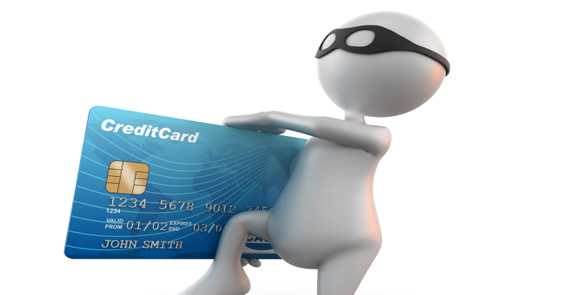It doesn’t matter how cautious you are; one day you might find that you were the victim of identity theft. It might be because you slipped. You didn’t protect your information well enough, someone went through your mail that you neglected to shred or you were sent a phishing email that you responded. It could be that the thief forced his way into your accounts and just took your information.
Regardless, it’s a bad day for you.
Identity theft results in millions of dollars stolen each year. Credit scores are damaged and lives are destroyed. So in order to keep the damage to a minimum, its important that you take certain steps immediately after finding out your identity has been stolen.
7 Steps You Must Take Right Now
Here are 7 steps that you must take right now if your identity has been stolen, in no particular order.
1. Place a Credit Freeze on Your Profile
When you put a freeze on your credit profile, you’re making it so that no one can access the information on your credit report. What this will do is prevent anyone from being able to take out more credit in your name, since creditors won’t be able to check the background of the person applying.
There are fees for credit freezes, usually in the $10 range. Then once you choose to unfreeze your account it will cost about the same amount. However, the fees might be waived in some states for victims of identity theft.
2. File a Police Report
Another thing you’ll want to do is file a police report. This is more or less to create a paper trail, so that you have proof when you contact creditors to let them you’ve been a victim.
Keep in mind that some police stations won’t fill out a police report. In this case, you’ll want to try to fill out a miscellaneous incidents report. If you’re just not getting anywhere with the police, try the state police instead, or a station in a different area.
Some police stations are required by law to take your report. You can visit the NAAG to find out for sure.
3. Put Out a Fraud Alert on Your Credit Reports
A fraud alert is similar to a credit freeze. It makes it more difficult for someone to borrow money or use services in your name because the lender has to verify that it’s you before they can issue any credit.
Fraud alerts stay open for 90 days, and also give you 1 free credit report. To place a fraud alert on your credit reports, just call any one of the major bureaus — TransUnion, Equifax or Experian — and they will contact the other 2 bureaus (they have to).
4. Order Your Credit Reports
The reason why you want to order your credit reports is so that you can see the damage that has been done. Not fun, I know. But you’ll want to see what accounts have been opened in your name so that you can call these creditors and have the accounts closed and disputes filed. Be sure to have identification ready, as well as any paperwork you may have collected on your situation up to this point. The creditors might want that for proof.
5. Close Accounts Opened In Your Name
Any accounts that you find opened in your name from step 4 you’ll want to call to have closed. You’ll want to tell them that you’ve been a victim of identity theft and ask if they will except your paperwork, or if you need to file information using their reports.
Once the process has been completed, you’ll want to ask that they send you proof (reports, letters, etc) that you aren’t responsible for the debt, that the account isn’t yours and that the information has been pulled from your credit report. You’ll want to keep all of this paperwork that they send you so that in case it’s not removed from your credit report or they’re still trying to hold you liable for the debt.
6. Report Fraudulent Charges on Your Credit/Debit Cards
You’ll want to report any fraudulent charges on your debt and credit cards as soon as you hear about them. The rule of thumb is that you’re not to be held liable for any more than $50 in charges if you were the victim of identity theft. However, you need to report the charges within a 90 day window, otherwise you may be stuck with the charges made.
7. Change Passwords and Pin Numbers
And another important thing that you’ll want to do is change your passwords and pin numbers. Be sure to change them all, regardless if the accounts were hacked or not. It’s better to be safe than sorry, and you never really know how long an account may be safe once you’ve had other accounts broken into. Especially if you use the same password for all of your accounts (which you shouldn’t).
What do you think? Have you been the victim of identity theft? What did you do to correct the problem?

